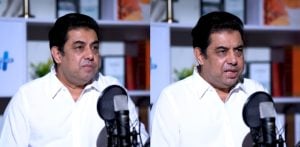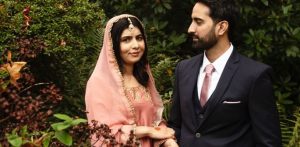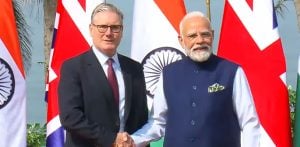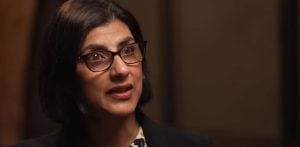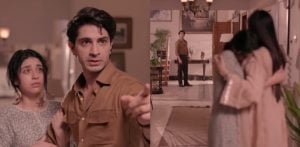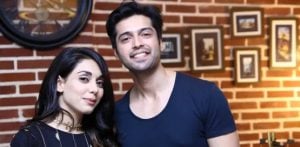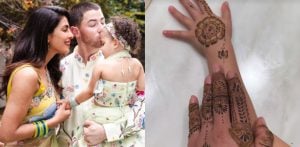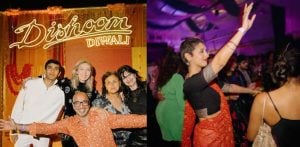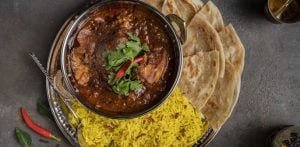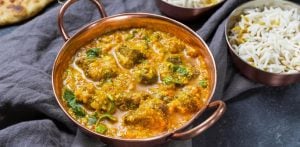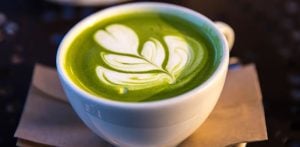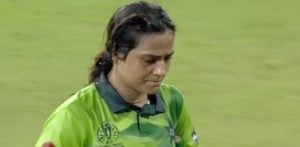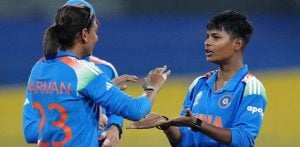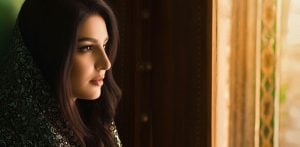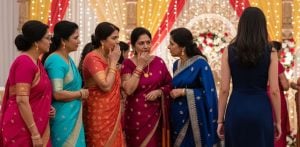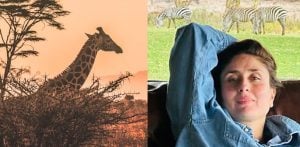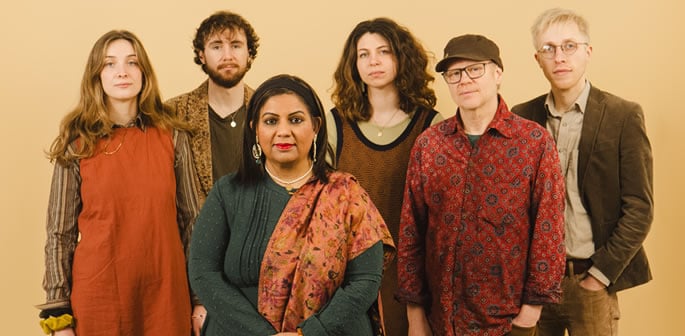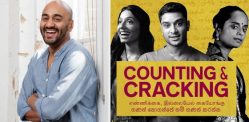"I brought certain well-known classics to the project"
British-Indian vocalist Deepa Shakthi is set to enchant listeners once again, this time in collaboration with acclaimed UK folk band Mishra.
Their upcoming album, Turn O Spinning Wheel, fuses the hypnotic rhythms of English folk with the soul-stirring intensity of Shakthi’s Sufi and Indian classical singing.
Their first single, ‘Kite’, blends Irish jig structures with soaring vocals, evoking vivid imagery and emotional depth.
Deepa’s Hindi verses intertwine seamlessly with Mishra’s instrumental layers, highlighting the dialogue between tradition and experimentation.
The collaboration brings together a talented ensemble and innovative production, showcasing a bold reimagining of folk music across continents.
For listeners, the upcoming album promises a journey where cultures meet in harmony and imagination takes flight.
Speaking to DESIblitz, Deepa discussed the origin of the collaboration with Mishra and the inspiration behind Turn O Spinning Wheel.
How did your collaboration with Mishra first come about?
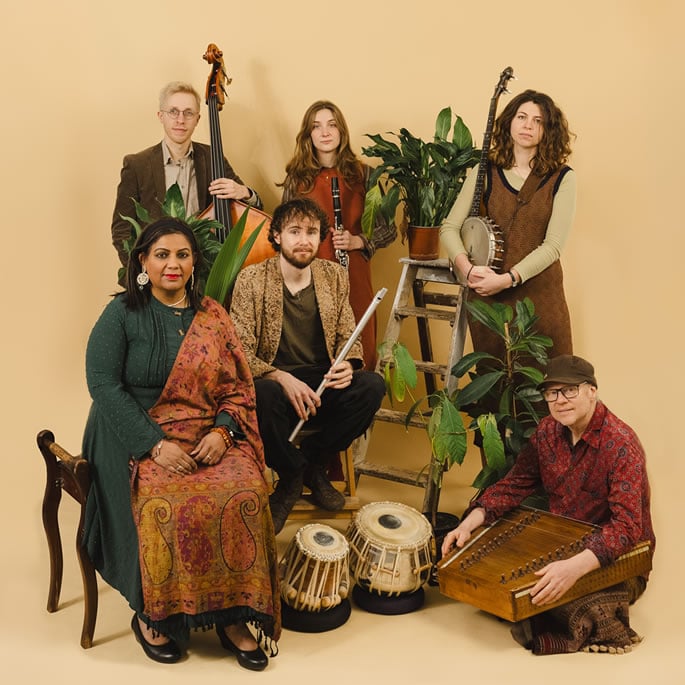
I was introduced to Kate Griffin and Ford Collier, the core/founding members of Mishra, by my long-time colleague and friend, John Ball (who is also part of the band).
John is a teaching associate at the University of Sheffield, delivering courses on Indian classical music and the band Mishra was the coming together of some of his exceptionally talented students who all studied ICM under his guidance.
To go right back to the start of our association: back in 2020, during lockdown, I had a couple of online solo concerts which I needed to perform and film as video recordings.
For this, I was on the lookout for suitable accompanists and reached out to John, who introduced me to Kate and Ford. Soon after, I invited them to work with me on a commission/call-out in the UK for new material based on Indian classical music.
By the time we finished that project, our journey together led to the idea of me featuring as a guest vocalist in a couple of upcoming Mishra concerts.
Eventually, this ended up becoming a separate project of ‘Mishra in collaboration with Deepa Shakthi’.
What drew you to working with a band rooted in English folk traditions?
Although the band is rooted in English folk traditions, Mishra’s material, from the outset, has had global influences, particularly Raag-based music from the Indian subcontinent and that made the collaboration very organic and almost effortless.
Tracks like ‘Wiser Hand’ and ‘Rise’ and ‘Road Dust and Honey’, which are pieces that had been written and released before I came into the picture, all have influences of Ragas such as, for example, Yaman and Jhinjoti and so on.
“Therefore, my arrival and contribution to the repertoire simply felt like an extension of that.”
With the Sufi pieces, I brought certain well-known classics to the project and Mishra have responded and adapted those to create new arrangements, approaches and structures to give them their unique identity, feel and sound.
The album blends folk, Indian classical, and Sufi sounds. How did you approach bringing these styles together?
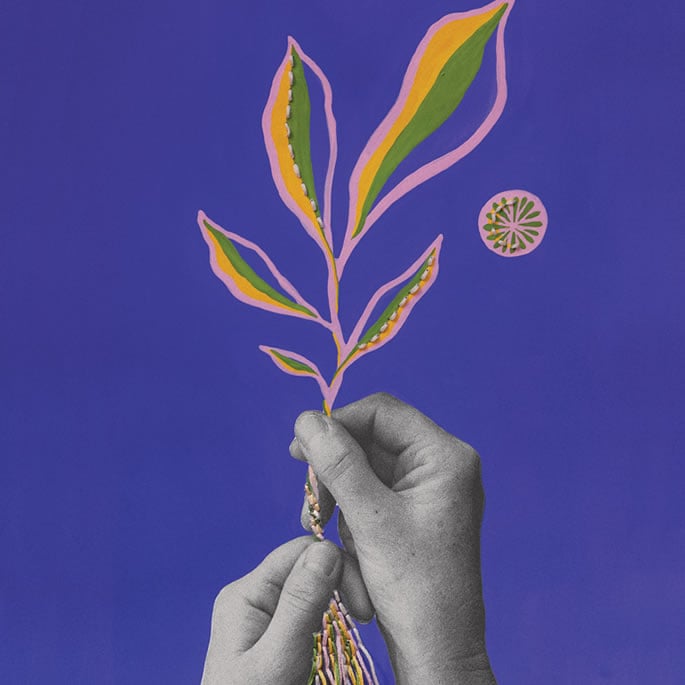
I am an Indian classical vocalist but I am also a composer and of course, Mishra’s Ford and Kate are writers too.
My career and journey as a musician has taken me through more than two and a half decades of cross-cultural work on the Global/World music scene, collaborating with Jazz, Folk and Western classical musicians.
This experience has taught me to very quickly respond to all kinds of genres outside of Indian music and to write material that blends and matches and fits with the sound.
Mishra is equally adept at doing the same, in reciprocation – especially as they have a good understanding of the principles of Indian music and the Raag and Taal system.
This has made the entire process of our music-making an educated but instinctive and natural, organic process.
Did you face any challenges when mixing Indian classical rhythms with British folk melodies?
No, not at all – if anything the whole experience has only highlighted how much these traditions have in common!
Whether it is a 6/8 rhythm or a composition in 5, the principles, the approach and feel have felt very familiar.
The album includes qawwali and Punjabi folk. How did you choose which traditional songs to reimagine?
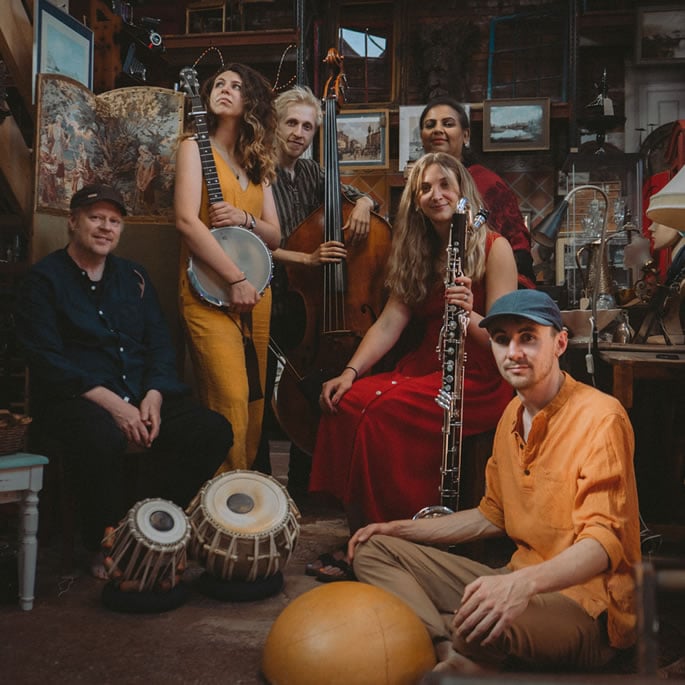
Actually, over the course of our discussions, I brought a list of suggestions to Ford and Kate, singing to them the main melody of the first verse (sthayi) and second verse (antara) and also briefly translating the lines and explaining the subject matter.
From those, we shortlisted and finalised ones that fitted best rhythmically, chord structure-wise and in one or two cases, subject/theme-wise.
For instance, we chose to bring in ‘Kala Doria’ because of the subject matter, i.e everyday happenings in the lives of village folk
And of course, Kate wrote fitting English lines to the Punjabi verses I was singing.
Can you share more about the dialogues of contemporary female experience explored on the album?
Kate, when she first started to work on the traditional song ‘Wild Young Men’, had the idea to change and adapt it to make it a call from the female perspective and about women whose voices needed to be heard.
This is a subject extremely close to my heart, having watched, first hand, women around me stifled and silenced; I therefore took to it with spirit and much enthusiasm.
Although my lyrics are intentionally very brief in the song (titled ‘Sunn Leh’ in Hindi), just the repetition of the phrase ‘Sunn Leh Meri Awaaz’ felt adequate to say everything that needed to be said.
What was the most rewarding part of recording Turn O Spinning Wheel?
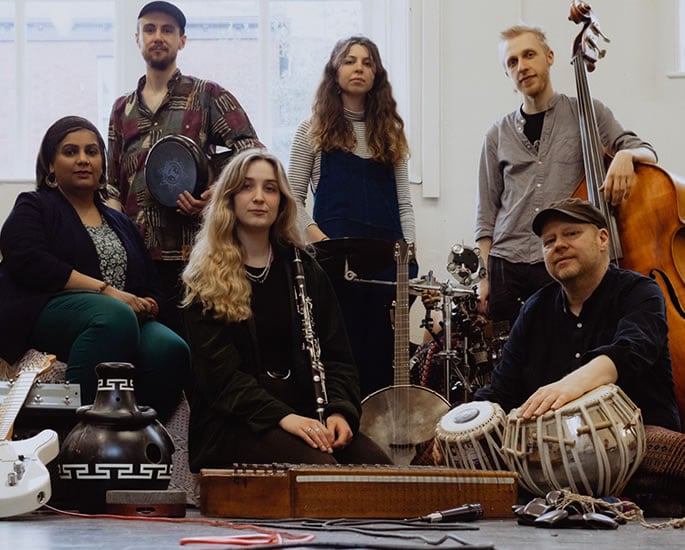
I personally find a lot of satisfaction and joy in projects that bring out and showcase the strength and beauty in the commonalities in two or more different traditions.
In the case of my collaboration with Mishra and the album we have recorded together, I feel that we achieved that with none of it sounding contrived or forced.
There is genuine creativity, imagination, exciting hypnotic rhythmic sounds, originality with some of our freshly composed material and a seamless crossing over between styles… and a whole lot more!
Do you have a favourite track on the album, and if so, why?
All of the tracks are dear to me but I guess I am really filled with joy when I hear ‘Wiser Hand’, which is so serene and atmospheric.
“It is based on the Raag Yaman with some beautiful writing from Kate.”
Also, I have sung a tiny section from a composition by my dear Guru, Pandit Uday Bhawalkar; I love ‘Bari Bari’ for its sheer hypnotic sound and ‘Turn’ for Kate’s beautiful composition, which I ended up co-writing and for the first time in my native language, Malayalam!
You’ve collaborated with many artists across genres. How is this project different from your past work?
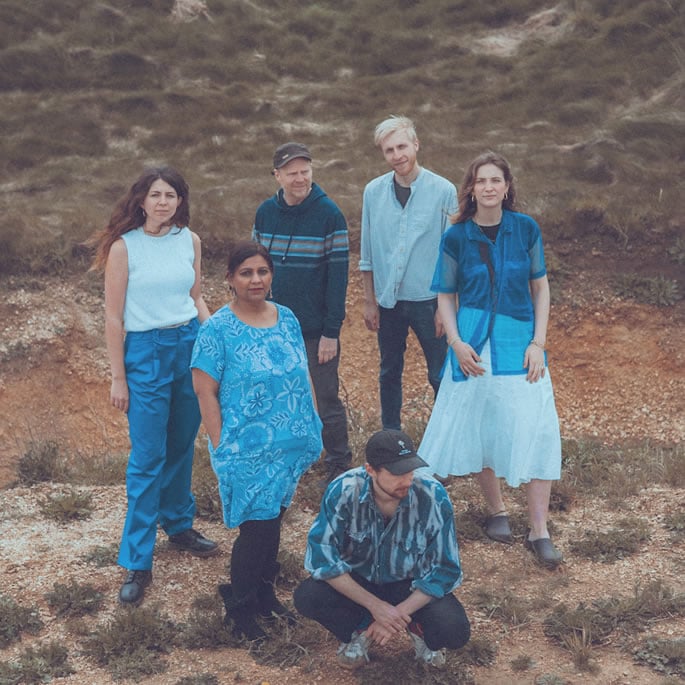
Yes, I have done countless collaborative projects with World music artistes but interestingly, many of the instruments featured in Mishra were new to me to work with.
For example, the whistle, banjo, bass and clarinet are instruments I had never worked with before.
Also, I have done relatively much more intense and close working on new compositional material this time and finally, last but not least, I have never before experienced this level of closeness and a sense of family as I have with this group of fabulous individuals!
What do you hope listeners will feel or take away when they hear Turn O Spinning Wheel?
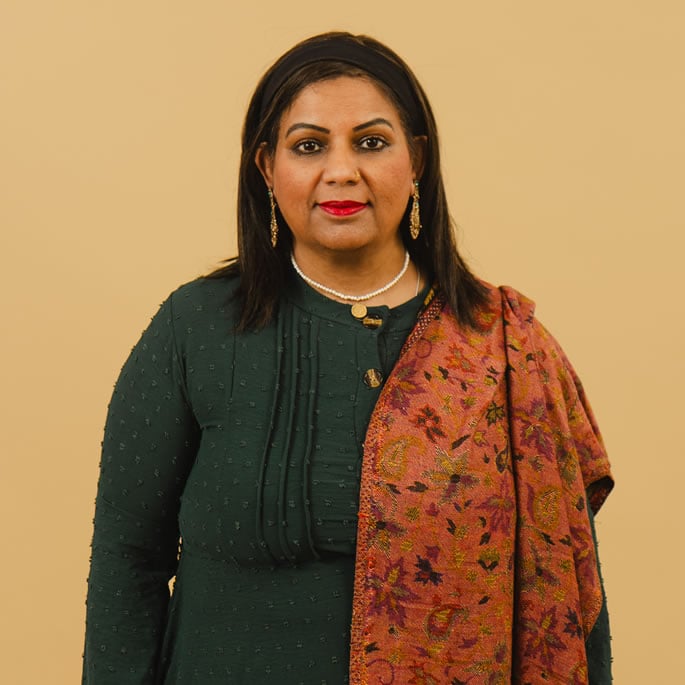
I am hoping and actually believe that listeners will be struck by the sheer concept of ‘possibility’ and the potential to resonate with unfamiliar languages and melodic structures.
I guess from my perspective, I am referring especially to the Western ears listening to material from the Indian music tradition for the first time.
I believe that music primarily is for the heart and for the soul and I do feel that the album transcends cultural divide and borders and boundaries in its reach.
With Turn O Spinning Wheel, Deepa Shakthi and Mishra demonstrate how music can transcend borders, blending English folk and Indian classical traditions with striking originality.
The album captures both the intricacy of their craft and the emotional resonance of their collaboration, offering listeners a soundscape that is at once timeless and adventurous.
Set to release on October 17, 2025, this is a project where voices, instruments, and cultures converse freely, inviting audiences to experience folk music in a thrilling new light.




